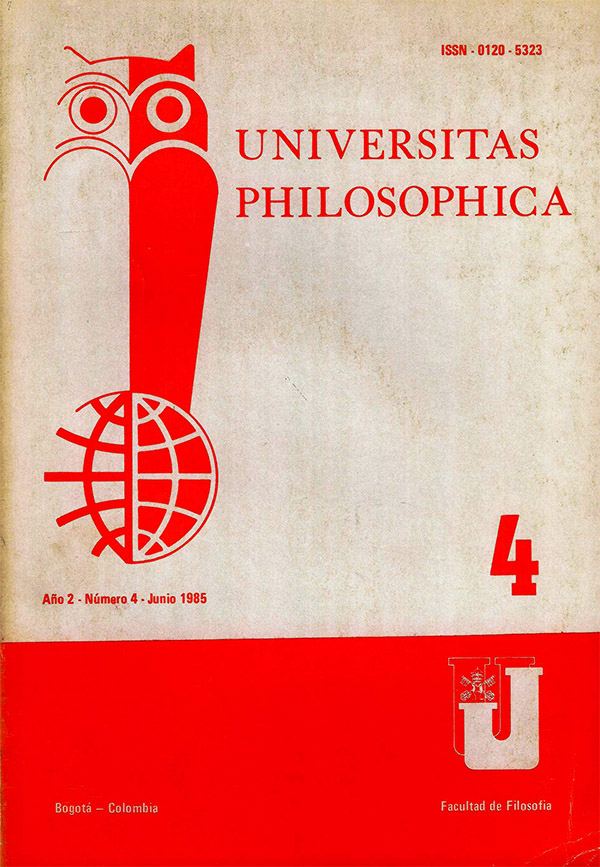Abstract
El manual de Historia de la Filosofía de W. Totok y la Nueva edición refundida del Ueberweg (*).
Las obras de consulta son una especie de instrumento necesario, especialmente en las Ciencias Humanas. "Ninguna rama de la ciencia puede prescindir de aquellos medios que informan sobre el estado y el proceso de sus conocimientos. Las bibliografías corrientes y retrospectivas, las relaciones de su progreso, las hojas de recensión, los diccionarios de contenidos, los compendios y manuales de enseñanza pertenecen, juntamente con las revistas especializadas, al elemento integrador de una organización científica que funcione bien. No todas las ramas de la ciencia están igualmente dotadas de este medio: lo están bien las especialidades antiguas con una larga tradición, como por ejemplo la Filología Clásica y la Teología, y todavía de un modo deficiente lo están otras disciplinas, aquellas que apenas en tiempos recientes se hicieron independientes, como la Pedagogía y la Psicología. La Filosofía, como antigua disciplina, está relativamente bien dotada de obras de consulta bibliográficas y que informan sobre los contenidos temáticos" (Totok, Willhelm, "Handbuch der Geschichte der Phílosophíe, l-Altertum", V. KIostermann, Frankfurt a M. 1964, en el Prólogo, pág. IX).
Hoy me voy a referir a dos nuevas obras de consulta en el Campo Filosófico: El Totok y el Ueberweg.
Totok, Wílhelm, "Handbuch der Geschichte der Philosophie", 1 ALTERTUM: Indische, Chinesische, Gríechisch-rómische Philosophie", Vittorio KIostermann, Frankfurt a. M., 1964,400 págs.
Überweg Fríedrich, "Grundríss der Geschichte der Philosophie", 5 Vols. Basel 1951-53.
This journal is registered under a Creative Commons Attribution 4.0 International Public License. Thus, this work may be reproduced, distributed, and publicly shared in digital format, as long as the names of the authors and Pontificia Universidad Javeriana are acknowledged. Others are allowed to quote, adapt, transform, auto-archive, republish, and create based on this material, for any purpose (even commercial ones), provided the authorship is duly acknowledged, a link to the original work is provided, and it is specified if changes have been made. Pontificia Universidad Javeriana does not hold the rights of published works and the authors are solely responsible for the contents of their works; they keep the moral, intellectual, privacy, and publicity rights.
Approving the intervention of the work (review, copy-editing, translation, layout) and the following outreach, are granted through an use license and not through an assignment of rights. This means the journal and Pontificia Universidad Javeriana cannot be held responsible for any ethical malpractice by the authors. As a consequence of the protection granted by the use license, the journal is not required to publish recantations or modify information already published, unless the errata stems from the editorial management process. Publishing contents in this journal does not generate royalties for contributors.


